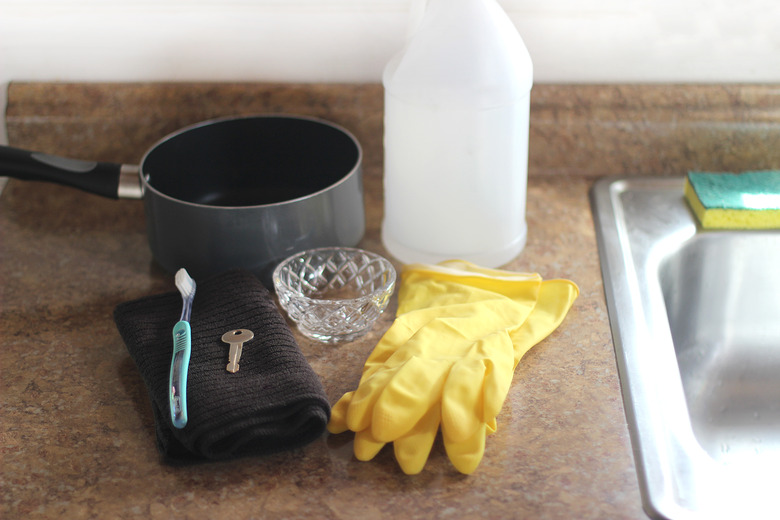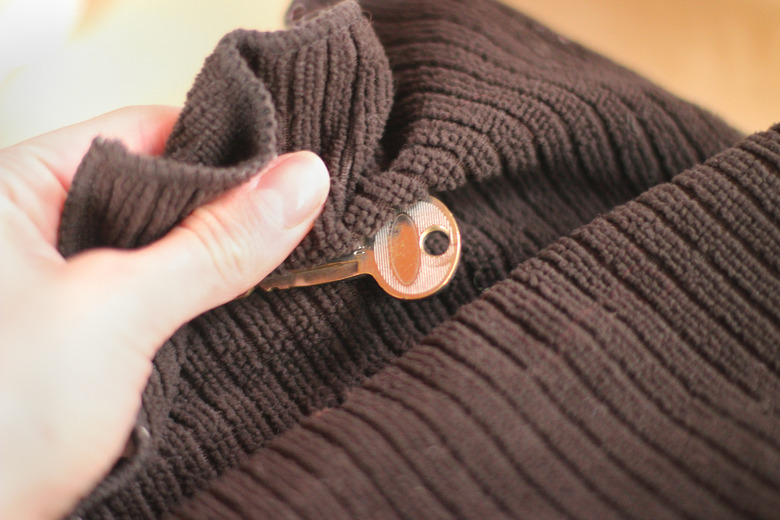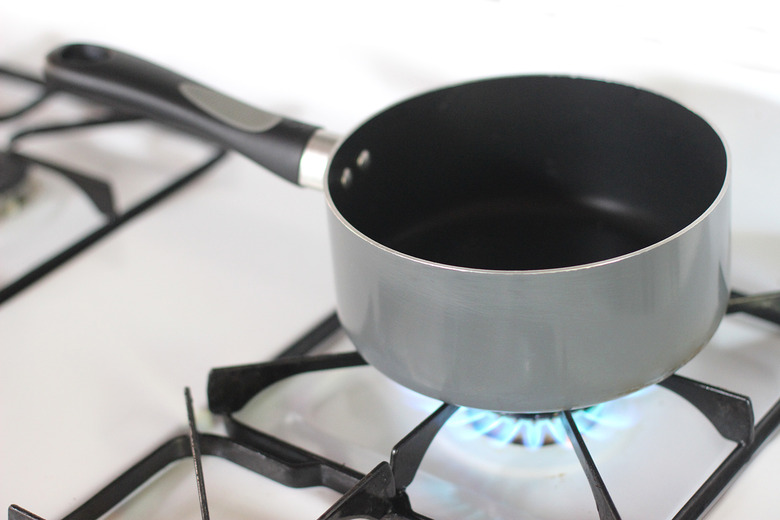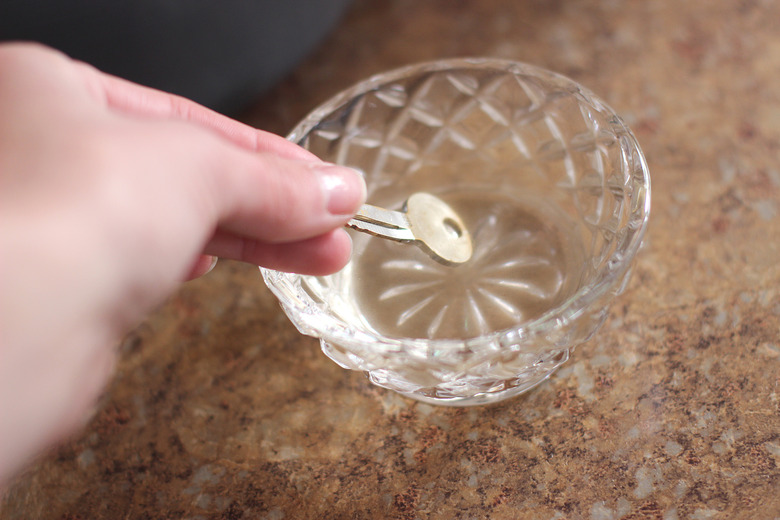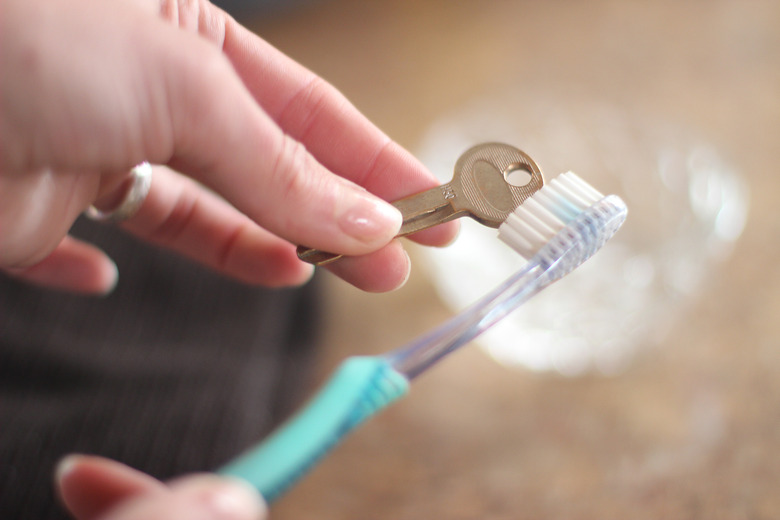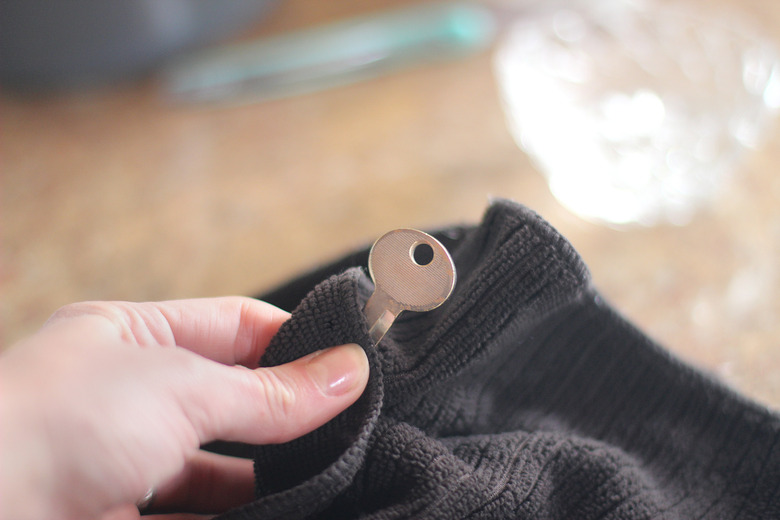How To Clean Rust Off Of Keys
Things Needed
-
Vinegar
-
Saucepan
-
Bowl
-
Toothbrush
-
Rag
Tip
Remove internal lock rust by spraying vinegar inside a lock.
Warning
Wear gloves before touching rusty, sharp metal to avoid contracting tetanus. If you suffer a cut, call your doctor to find out if you need a shot.
Keys rust when exposed to moisture, and rust affects the way a key fits into a lock by slowly dissolving the shape of the key. This causes problems because locks require a key with an exact shape to open. And once a key's teeth, the jagged part, have dissolved, a copy can't be made. The key is ruined and a locksmith needs to make a key from the lock, which can be expensive and time consuming. Keep keys dry to prevent rusting in the first place; if you have rusted keys, use vinegar to remove the rust.
Step 1
Wipe off any dirt or debris covering the rusted keys. Vinegar works better when it can make direct contact with the rust.
Step 2
Simmer enough vinegar to cover the keys in a saucepan. Don't put the keys into the saucepan, though.
Step 3
Pour the vinegar into a bowl. Add the keys. Allow the keys to soak for 30 minutes. If the rust layer is thick, soak for another 30 minutes.
Step 4
Take out the keys. Use a toothbrush to scrub off the rust. If rust remains, soak for another hour. The acid in the vinegar removes rust.
Step 5
Wipe off all residue with a rag. Don't worry–the vinegar smell disappears after a little while.
